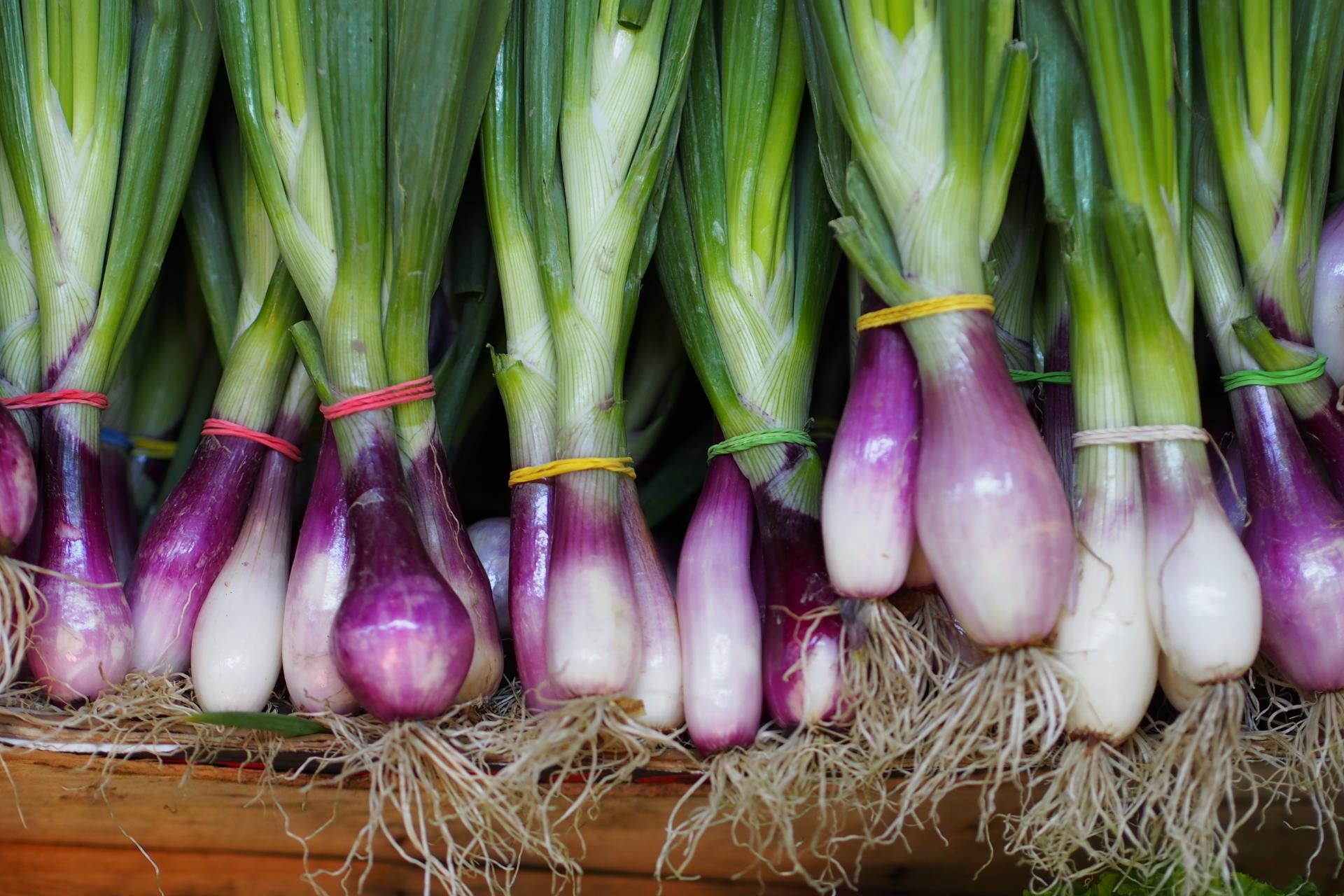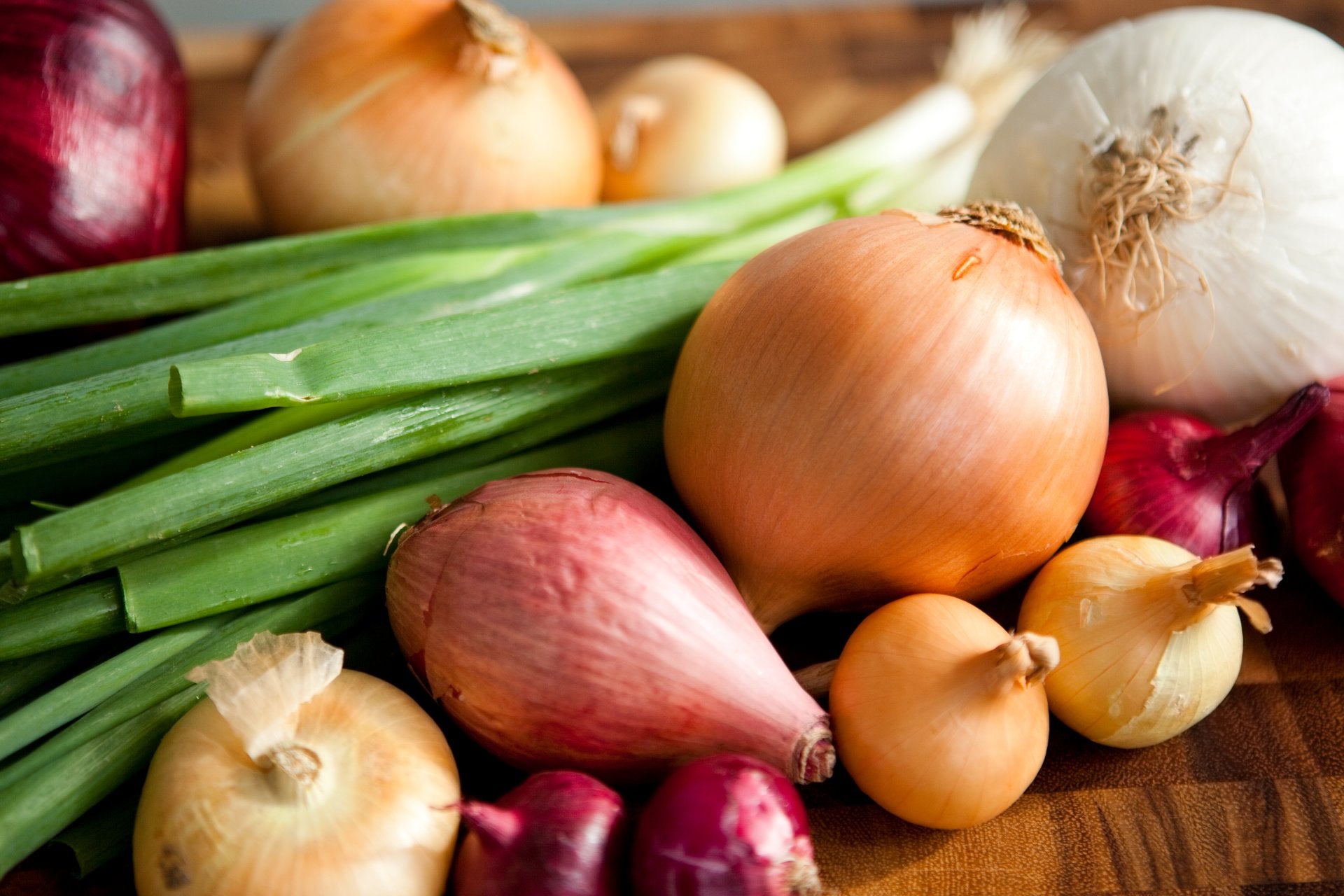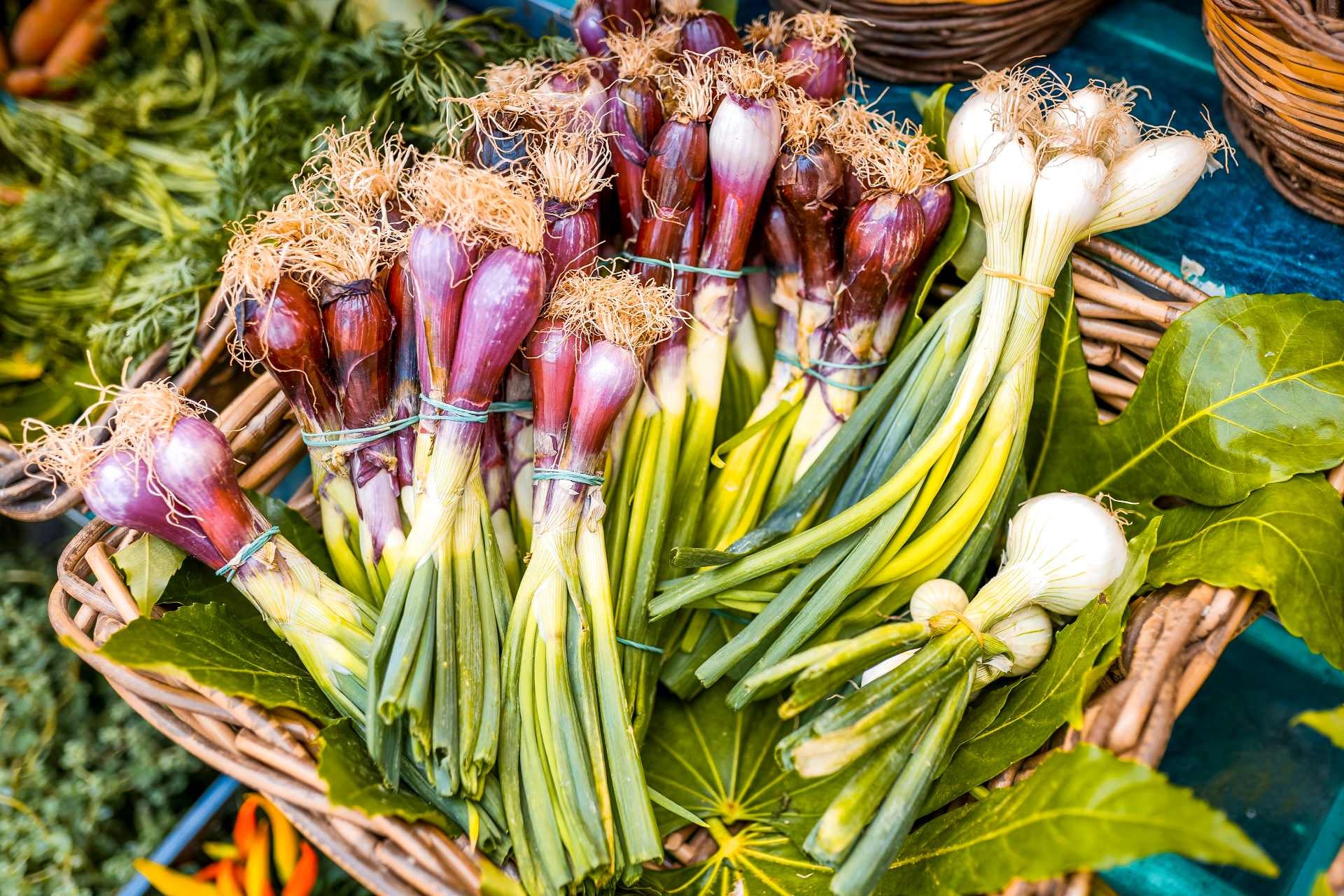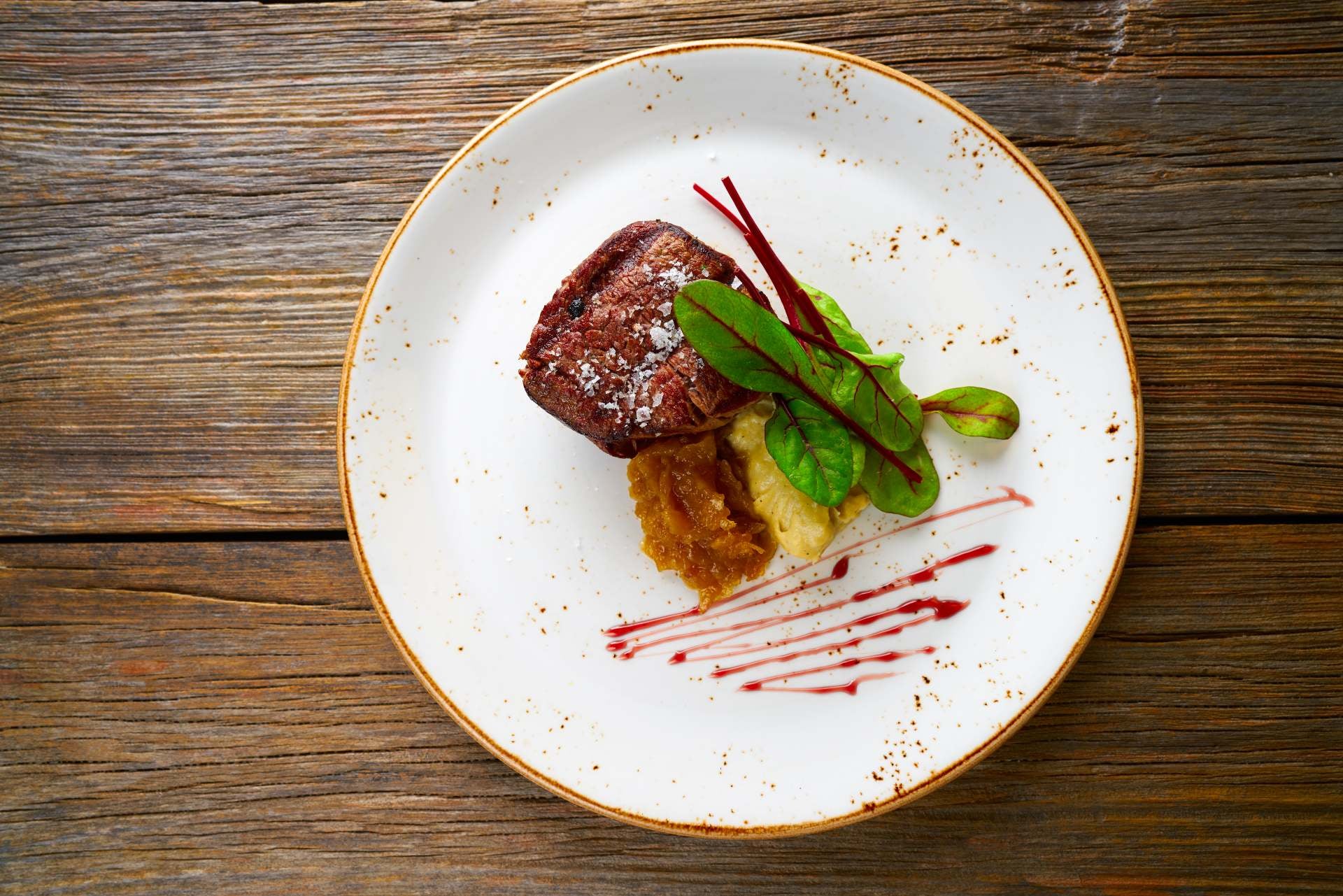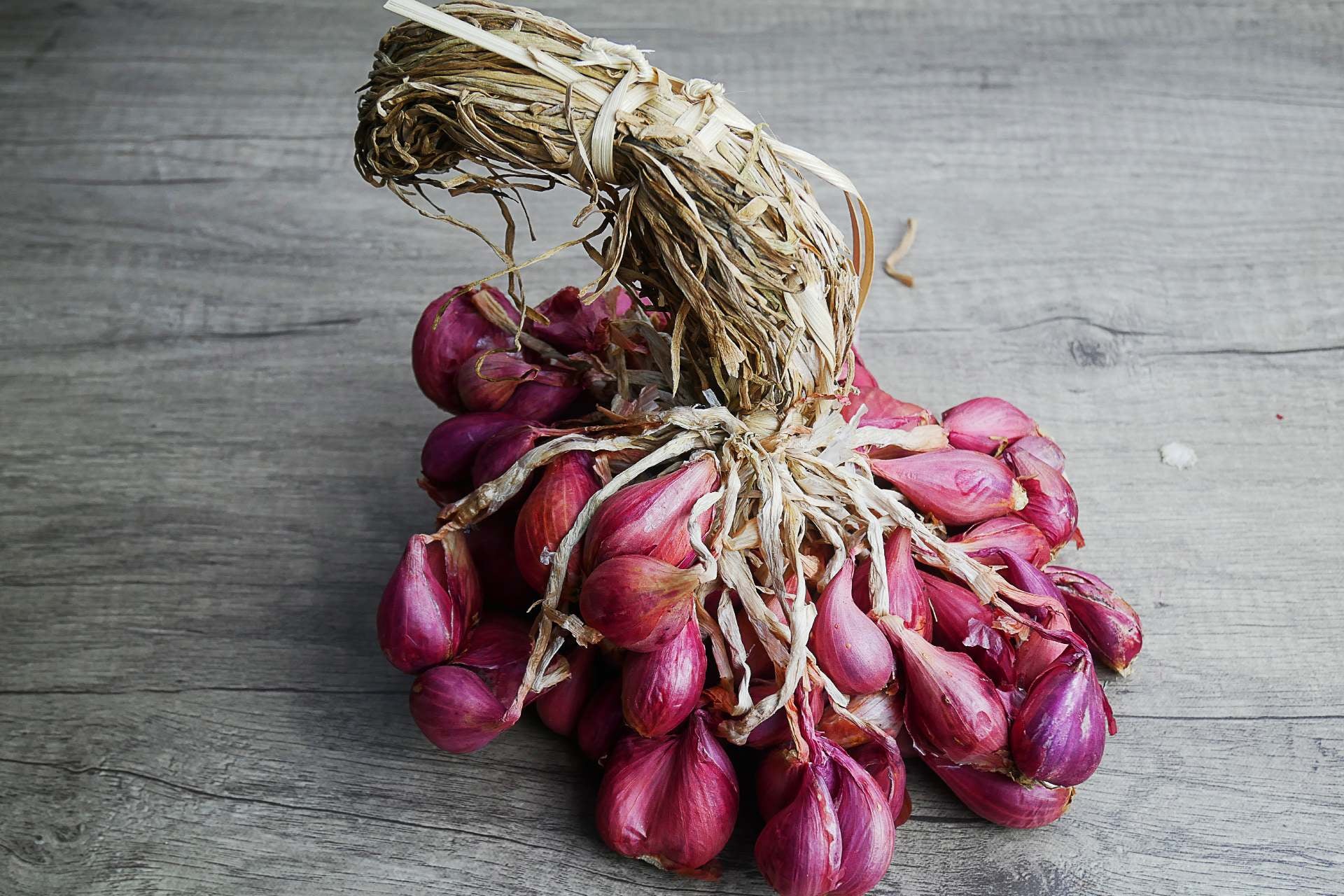Small, onion-like and mild, shallots are often used as a base flavour in dishes that require something more subtle than onion or garlic. These sweet, delicate alliums are most often associated with French cuisine, but it is actually thought that they were first grown somewhere in Central Asia. They can be found in a variety of Asian dishes, and are particularly popular in Thailand.
You should store shallots in the same way you would onions: in a cool, dark, well-ventilated place. Moisture can cause rotting, so you should keep whole onions or shallots away from the humid environment of the fridge, instead storing them in a mesh bag or open basket in a cellar. Both are typically cured to remove excess moisture before they are sold, helping them to keep for longer.
Once peeled, however, shallots and alliums should be kept in an airtight container or sealable bag in the fridge. If they have been peeled only, they should keep for up to 2 weeks, and up to 10 days if they have been sliced. Once cooked, they will keep for a further 3 to 5 days only.


